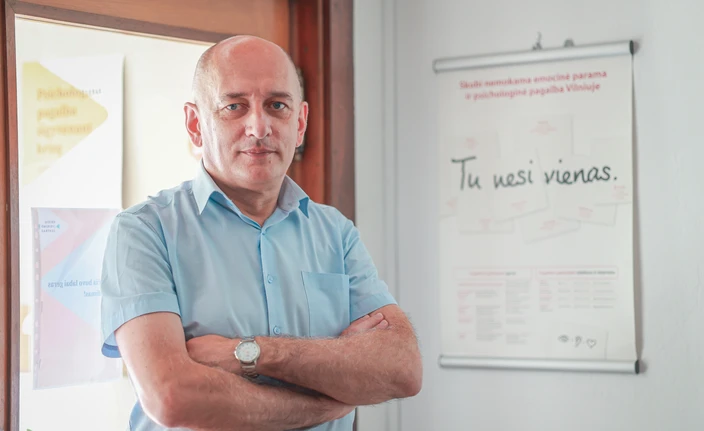As we stick to social distancing measures, distance learning has become a new norm, bringing online learning opportunities as important as ever. With high schoolers and their teachers, university students and their professors taking it all online, we have gone through the adaptation process, now looking for ways to make online learning more effective, interactive, and engaging. As in every crisis, we saw that there lies an opportunity too, in both formal but non-formal education.
Media literacy education online: let’s meet youth, where they are
As we stick to social distancing measures, distance learning has become a new norm, bringing online learning opportunities as important as ever. With high schoolers and their teachers, university students and their professors taking it all online, we have gone through the adaptation process, now looking for ways to make online learning more effective, interactive, and engaging. As in every crisis, we saw that there lies an opportunity too, in both formal but non-formal education.

The Media4Change program of the National Institute for Social Integration identified the potential for creating digital learning opportunities in the area of media education long before the pandemic, as we have been witnessing young media users having their daily life affected by media, especially online. Today’s digital generation is growing up with easy access to digital media and information. Since young media users have the skills and abilities to navigate the new communication technologies, online learning has become a prominent part of their education.
Digital means of learning for digital generation
Utilizing these competences, young people have potential to easily engage in both formal and non-formal online learning. Creation of Digital MIL Lab initiated by Media4Change was based on such an idea, making media and information literacy (MIL) courses accessible online to youth and youth workers no matter where they are, removing physical barriers. Online MIL education with such courses will be free which gives increased opportunities for youth to learn modern skills virtually at no cost and promotes their empowerment. Such education forms can be used to empower youth living in remote or rural areas, where they usually lack opportunities. Digital education platforms open doors for them to learn from experts from all over the world. It also gives young people flexibility and the opportunity to fit learning into their lives with a self-paced approach.

Through digital means, different forms of media will be used in order to make content more engaging and interactive, as it will combine video, audio, and textual material, complemented with interactive quizzes and assignments for participants to keep track of their progress. We believe that such an online learning platform is an answer to future society’s learning needs, responding to their active participation and engagement with different forms of media.
With media becoming a big part of their life, there is a need to make sure this generation is well prepared to use the given opportunities safely, responsibly, and creatively. For this reason, Media4Change has taken an initiative to gather various experienced partners from across the Europe to build a Digital MIL Lab, an online learning platform that aims to strengthen media literacy skills of youth, targeting those who directly engage with young audiences – youth workers, young journalists and their mentors, and youth leaders, aiming to provide them with relevant and useful learning and teaching material and competences. The wide scope of partners’ expertise responds to the existing opportunities and challenges of the complex media world.
MIL courses responding to the complex media world
Media and information literacy is a set of competences that let us critically assess, access, consume, and create media and information. This term is not new and in their digital courses, the academics from Vytautas Magnus University (Lithuania) will provide a look into the developments of MIL and why we need it to understand and interpret media. As the MIL field is evolving, VMU experts will gather existing theories and present the latest research methods used in the area. They also address some challenges of today – cybersecurity concerns raised by digitalization.

Understanding how the media works, helps us to make safe and healthy choices. One of the most recent developments and often discussed topics is the complexity of digital media algorithms and how they work to define what appears on our news feed. This will be addressed by an expert and media researcher Guna Spurava from Latvia, exposing ways that not only let you avoid being affected by these algorithms, but also to impact algorithms yourself and use them to your own advantage. Experts from University of Latvia will provide insights into what are new media developments and what opportunities for content creation and media literacy they give, making the most of new forms of media such as podcasts, streaming, and even VOD services.
Empowerment of media users remains at the core of the new platform and is an integral part of youth work. Therefore, we are developing courses that will also very practically provide skills to utilize opportunities given by combination of media and other digital tools, such as creation of simple GIS (geographic information system) and digital maps. Special course will give a chance to learn how to create different forms of media, f.e. visuals to present data and statistics (infographics, charts), or written WordPress posts to start your own blog.
Data can tell powerful stories in the media. European Youth Press will let users of MIL courses explore the ways in which data can be used to tell stories. As a young media makers’ organisation, EYP will help its peers understand the messages sent by the media. It will provide practical tips and tricks on how not to get lost in the information labyrinth and to learn to use information and image verification tools and discern fake news.

Even though media can be analysed in numbers and algorithms, the content remains at the core. Do we know how to read what’s between the lines and do we actually understand the language of media? European Dialogue (Európsky Dialóg) is here to help you to understand that. Its experts will dive into the art of storytelling, the language of media, and various types of media analysis, helping media users to take a more critical and analytical look at the news and information they consume. However, today’s media are not only about news and their consumption, the rise of digital media has also introduced new ways of civic engagement. With the help of digital tools, we can take a more active role in civic life not only in our country but in the world as well. Therefore the ED will cover the rise of digital citizenship and what rights and limits we have in online participation.
To correspond with the needs of modern society, these courses will also take a look into the future of media. The team of MediaChange will introduce the most current trends in the media world, and predictions for the future development in the field of journalism. Such topics will let participants understand the importance of trust building between journalists and their audiences and how this trust can be created or broken (by media that are biased or spread hate). With engaged, community-based journalism practices on the rise, Media4Change will present these new models of journalism.
The future is now
Development of the content for Digital MIL Lab is progressing and the platform will be launched later this year. Upcoming fall we will invite youth representatives, youth workers, and educators to this virtual MIL laboratory, where they will find 35 different courses and lessons providing theoretical knowledge and facilitating development of practical skills in the area of media and information literacy. The platform is being built in a way ensuring that not only high schools and youth centers, but also institutions educating or training journalists would find it user friendly and empowering.

As this initiative aims to integrate innovative distance based learning courses into the activities of the main MIL formal and non-formal education agents and help them to educate people further, we invite interested parties – youth workers, leaders, young journalists, young media makers, and media literacy experts and activists to reach out to us. If you have ideas or suggestions on how to make MIL online learning more effective or want to contribute to content creation with your expertise or your skills, please contact us. With different approaches and expertise, as well as platform’s and courses’ tests run with the target groups, Digital MIL Lab is being developed to correspond to the current needs of the youth.
Interested? We welcome MIL experts, youth representatives, and youth workers to share their insights and give feedback to our learning content and platform which is under construction.
Are you a young journalist, media maker, or content creator? Do you often inspire your peers and take an initiative? Are you engaged in youth work or social education? Reach out to us to be listed among those who see the platform and test it out first, email us at [email protected].

This article is part of the International Journalism Lab initiated by Media4Change. The laboratory is part of the project “Digital MIL Lab in Youth Work”. The project is financed under the Erasmus+ program of the European Union.
The authors of the project articles do not coordinate the topics and content of the articles with the sponsors of the project.


